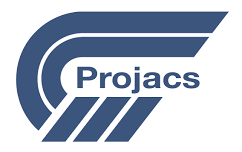
Leading with Integrity Decision Making and Accountability
Course ID: 2512290101257ESH
Course Dates : 29/12/25 Course Duration : 5 Studying Day/s Course Location: London, UK
Language: Bilingual
Course Category: Professional and CPD Training Programs
Course Subcategories: Operations and Process Excellence
Course Certified By: ESHub CPD & LondonUni - Executive Management Training
* Professional Training and CPD Programs
Leading to:
Executive Diploma Certificate
Leading to:
Executive Mini Masters Certificate
Leading to
Executive Masters Certificate
Certification Will Be Issued From :
From London, United Kingdom
Course Information
Introduction
Leadership is not merely about authority or influence; it is fundamentally about guiding others through decisions that align with ethical principles, accountability frameworks, and organizational values. In an era where corporate scandals and leadership failures frequently dominate headlines, the demand for leaders who prioritize integrity has never been more critical. This course addresses the pressing need for professionals to master decision-making processes rooted in transparency, fairness, and responsibility. By exploring the intersection of ethics, leadership, and accountability, participants will gain the tools necessary to navigate complex challenges while fostering trust within their teams and organizations.
The gap between theoretical knowledge and practical application often leaves leaders unprepared when faced with dilemmas requiring moral judgment. Many professionals struggle with balancing competing interests—such as profitability versus social responsibility—or fail to recognize how unconscious biases can cloud decision-making. Drawing on established theories such as Lawrence Kohlberg’s stages of moral development and John Rawls’ concept of justice as fairness, this course bridges these gaps by equipping participants with actionable strategies. For instance, consider the case of Volkswagen’s emissions scandal, where a lack of ethical oversight led to catastrophic consequences. Such examples underscore the importance of embedding integrity into every layer of organizational culture.
Mastering decision-making and accountability offers profound benefits for both individuals and organizations. Leaders who consistently act with integrity inspire loyalty, enhance team performance, and build reputations that attract top talent and clients. Organizations, in turn, experience improved risk management, regulatory compliance, and long-term sustainability. Research from the Ethics & Compliance Initiative (ECI) highlights that companies prioritizing ethical leadership report significantly lower rates of misconduct and higher employee engagement. These findings demonstrate that leading with integrity is not just a moral imperative but also a strategic advantage.
This course delves into real-world scenarios to illustrate the practical applications of its content. For example, consider a mid-level manager tasked with implementing cost-cutting measures during an economic downturn. By applying the principles taught in this program—such as stakeholder analysis, ethical reasoning, and transparent communication—they could devise solutions that preserve jobs without compromising quality or safety. Similarly, healthcare administrators grappling with resource allocation dilemmas would benefit from frameworks designed to ensure equitable and accountable outcomes.
Participants will explore cutting-edge trends shaping modern leadership practices, including the rise of artificial intelligence (AI) in decision support systems and the growing emphasis on environmental, social, and governance (ESG) criteria. As industries increasingly adopt AI tools, understanding how to maintain human oversight and ethical standards becomes crucial. Meanwhile, ESG considerations are reshaping corporate priorities, making accountability synonymous with success. This course positions participants at the forefront of these developments, empowering them to lead with confidence and credibility.
Ultimately, “Leading with Integrity” seeks to cultivate a new generation of leaders capable of navigating ambiguity with clarity and conviction. Whether addressing internal conflicts, external pressures, or systemic issues, participants will emerge equipped to champion ethical practices that drive positive change. Through immersive learning experiences, collaborative discussions, and hands-on exercises, this course transforms abstract concepts into tangible skills, ensuring lasting impact.
Objectives
By attending this course, participants will be able to:
Analyze ethical dilemmas using established frameworks such as utilitarianism, deontology, and virtue ethics.
Evaluate the role of accountability mechanisms in promoting organizational integrity and mitigating risks.
Design transparent decision-making processes that incorporate diverse perspectives and stakeholder needs.
Implement strategies to foster a culture of ethical leadership within their teams and organizations.
Apply best practices for communicating decisions effectively to build trust and alignment.
Assess the impact of emerging technologies and global trends on ethical decision-making and accountability.
Reflect critically on personal biases and assumptions to enhance self-awareness and inclusive leadership.
Who Should Attend?
This course is ideal for:
Mid-to-senior-level managers seeking to strengthen their ethical leadership capabilities.
HR professionals responsible for developing organizational policies and training programs.
Consultants advising businesses on governance, risk management, and compliance.
Team leaders aiming to create cohesive, high-performing groups grounded in shared values.
Educators and trainers focused on leadership development and professional ethics.
These groups will find the course invaluable because it provides practical insights and tools tailored to address contemporary challenges in leadership and accountability. While prior experience in leadership roles is beneficial, the course is structured to accommodate intermediate learners, offering foundational knowledge alongside advanced techniques.
Training Method
• Pre-assessment
• Live group instruction
• Use of real-world examples, case studies and exercises
• Interactive participation and discussion
• Power point presentation, LCD and flip chart
• Group activities and tests
• Each participant receives a 7” Tablet containing a copy of the presentation, slides and handouts
• Post-assessment
Program Support
This program is supported by:
* Interactive discussions
* Role-play
* Case studies and highlight the techniques available to the participants.
Daily Agenda
Daily Schedule (Monday to Friday)
- 09:00 AM – 10:30 AM Technical Session 1
- 10:30 AM – 12:00 PM Technical Session 2
- 12:00 PM – 01:00 PM Technical Session 3
- 01:00 PM – 02:00 PM Lunch Break (If Applicable)
- Participants are expected to engage in guided self-study, reading, or personal reflection on the day’s content. This contributes toward the CPD accreditation and deepens conceptual understanding.
- 02:00 PM – 04:00 PM Self-Study & Reflection
Please Note:
- All training sessions are conducted from Monday to Friday, following the standard working week observed in the United Kingdom and European Union. Saturday and Sunday are official weekends and are not counted as part of the course duration.
- Coffee and refreshments are available on a floating basis throughout the morning. Participants may help themselves at their convenience to ensure an uninterrupted learning experience Provided if applicable and subject to course delivery arrangements.
- Lunch Provided if applicable and subject to course delivery arrangements.
Course Outlines
Foundations of Ethical Leadership
Introduction to Ethical Theories and Frameworks
Understanding Bias and Its Impact on Decision-Making
Building Trust Through Transparent Communication
Case Study Analysis: Lessons from Real-World Scandals
Day 2:
Navigating Complex Dilemmas
Stakeholder Mapping and Prioritization Techniques
Balancing Competing Interests in Decision-Making
Tools for Ethical Risk Assessment
Group Exercise: Resolving Hypothetical Dilemmas
Day 3:
Accountability in Action
Establishing Clear Roles and Responsibilities
Designing Effective Feedback Loops
Legal and Regulatory Considerations in Accountability
Workshop: Developing Accountability Plans
Day 4:
Leading Cultures of Integrity
Principles of Organizational Culture Transformation
Strategies for Embedding Ethics into Daily Operations
Overcoming Resistance to Change
Panel Discussion: Insights from Industry Experts
Day 5:
Future-Proofing Ethical Leadership
The Role of Technology in Ethical Decision-Making
Aligning with ESG Criteria and Global Trends
Personal Reflection and Goal Setting
Final Project Presentations and Feedback



















































